Powder Keg: Who are South Australia’s biggest cocaine traffickers, dealers?
From Cocaine Cassie, to a sandstone-importing businessman and a man whose plan was thwarted by a leaky boat in South America, meet SA’s would-be drug royalty.
Police & Courts
Don't miss out on the headlines from Police & Courts. Followed categories will be added to My News.
Australia is in the midst of a cocaine crisis.
In parts of the country sales of cocaine have been higher than sales of the globally popular soft drink Coca-Cola.
At up to $450 for a gram – a small bag – the drug is making “accidental dealers” out of well-paid professionals who are fuelling their secret addiction.
A special NewsCorp investigation reveals the underbelly of cocaine importation in Australia, the faces behind some of the biggest busts in the country and how they’re smuggling it in.
While usage on the east coat has increased more than 17 per cent in the past decade, major busts of dealers and importers in South Australia date back for more than 20 years.
From Cocaine Cassie, to a sandstone-importing businessman and a man who plotted an ill-fated boat trip from South America to Australia, meet SA’s kings and queens of cocaine.
Pietroantonio Cerullo
The businessman who once had his hands on the state’s largest cocaine haul was sentenced to 20 years jail in 2004.
Cerullo, then 60, was given a 14-year non parole period by Justice Kevin Duggan in the Supreme Court.
He had been tried on possessing a prohibited import and was initially sentenced to 25 years jail, a conviction overturned by the Court of Criminal Appeal.
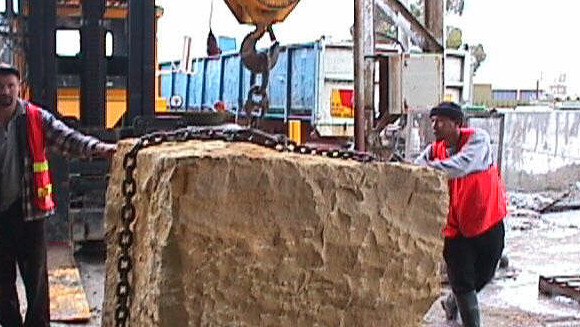
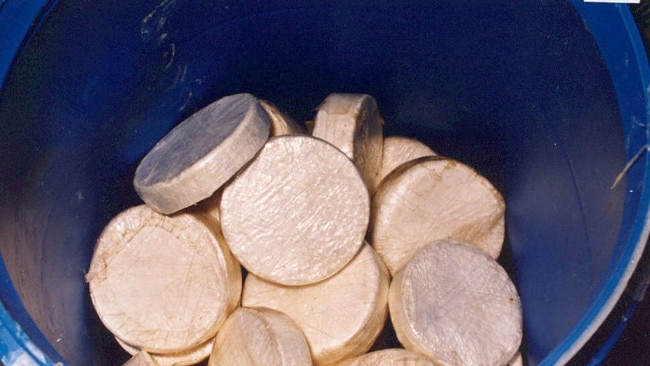
A retrial was ordered and Cerullo, then 60, from Adelaide’s inner north, was again found guilty of possessing more than 300kg of cocaine in his shed in 2000, worth more than $31m.
The cocaine had been divided into 476 discs that resembled rounds of cheese and was hidden inside six barrels.
Police also found $300,000 in cash stuffed inside an onion bag in Cerullo’s pantry.
Detectives discovered Cerullo was importing sandstone from Colombia, under the guise of making gravestones.
He imported 12 huge sandstone blocks in three separate shipments in 2000.
Evidence suggested three of the 12 sandstone blocks were hollowed out and used to hide the cocaine they later seized at his home.
The retrial heard Cerullo stole the identity of an acquaintance and used it to rent premises in Adelaide and build a business for himself, which acted as a front for his cocaine dealings.
The prosecution said Cerullo did not import the drug, but took possession of it after its arrival in Australia.
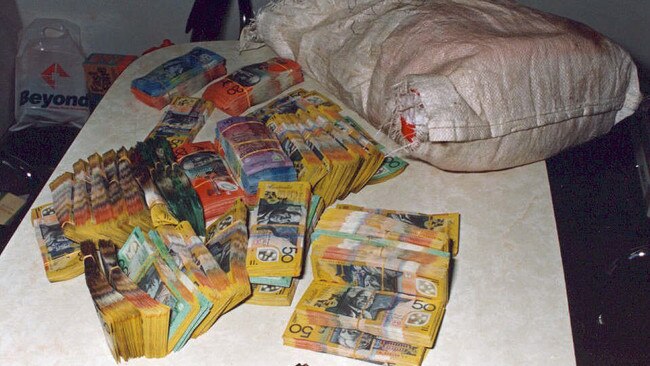
Ibrahim Halil Yavuz
The Adelaide man whose plan to import enough cocaine to set him up for life, but a leaky boat in South America and a six-month delay ruined his plans.
Yavuz pleaded guilty to conspiracy to import a large commercial quantity of cocaine into Australia as part of a convoluted plan in 2014 and was sentenced to more than nine years in prison in April, 2020.
He and another co-accused found a courier in May 2014 and bought him a ticket to Panama City where he was supposed to organise the boat, secure the cocaine and begin the long trip back to Australia.
Yavuz and the courier even attended a Flight Centre outlet in the northern suburbs so the courier could be shown on a map of the world his route back to Australia via New Zealand.
The courier was to be paid between $200,000 and $250,000 for his role in the conspiracy.
But the plan started to fall apart when the courier arrived in Panama in late May.
Over the course of a week Yavuz and the courier exchanged move than 160 phone calls and text messages as they scrambled to get the plan together.
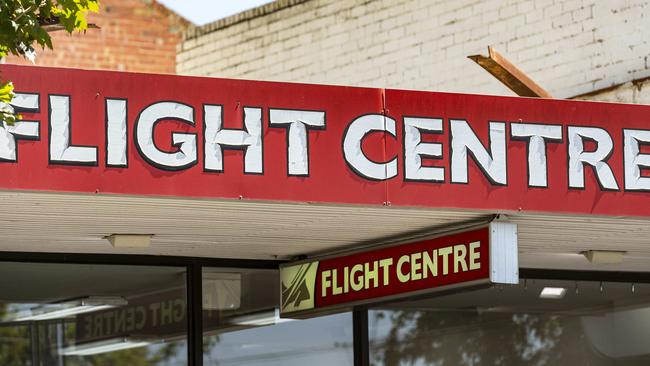
On May 28, the courier called to say the boat was in poor condition and wouldn’t be ready for another six months.
After trying to find a solution to the problem Yavuz returned to the same Flight Centre to book the courier a ticket home.
The amount of cocaine to be imported back to Australia was never proved, however District Court Judge Jo-Anne Deuter concluded it was more than the 2kg Yavuz claimed.
She pointed to the need for a boat to transport the illicit substances, as well as the street value of the drug, which, in 2014, was between $185,000 and $240,000 per kilo in the eastern states, as evidence that amount was closer to the alleged 75kg put forward by the prosecution.
In April, 2019 District Court Judge Jo-Anne Deuter said while conspiring to import the cocaine, Yavuz had also been running a large cannabis syndicate shipping drugs to Perth.
For that offending he was sentenced to six years and six months in prison with the sentence due to expire in January this year.
For this crime he was sentence to nine years and six months in prison with a six-year, six-month non-parole period.
Lauren Beth Cullen
Cullen’s involvement in a scheme to import $500,000 cocaine and the drug ice to Adelaide was sentenced in secret.
The Advertiser could not report the sentence given to the self-confessed drug mule, nor the reasons for her punishment.
District Court Judge David Smith refused to release her sentence to the media and then closed the courtroom before imposing her penalty in July, 2009.
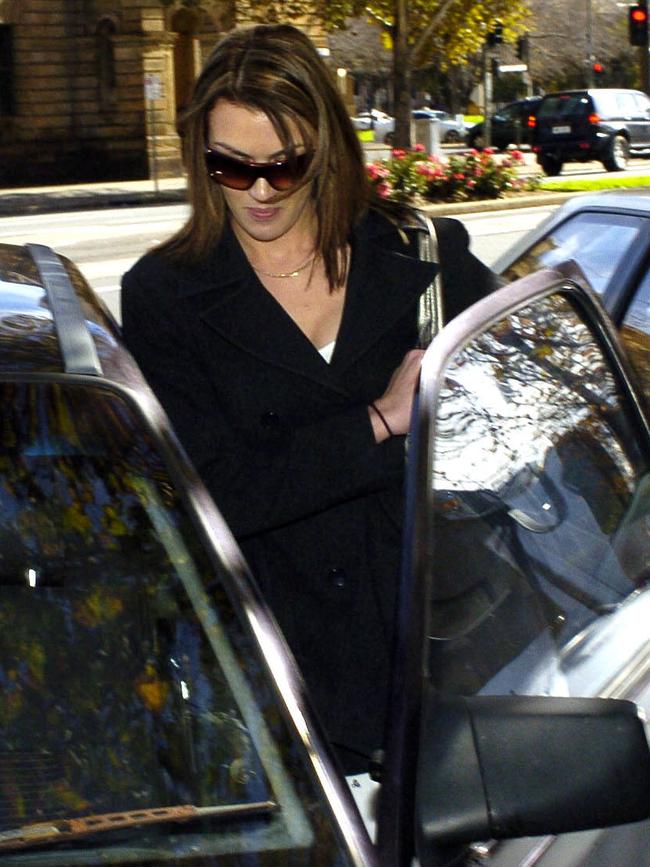
His rationale could not be reported as it was the subject of a suppression order.
Prosecutors alleged between December 8 and 22, 2007, Cullen helped to bring drugs into Adelaide Airport from Sydney.
The then 24-year-old, of Semaphore, was arrested after collecting a bag from the luggage carousel.
The court heard it contained 560g of cocaine in a talcum powder bottle.
She pleaded guilty to two counts of trafficking in a commercial quantity of a controlled drug.
Phillip Andrew Bayly
He was once a Liberal Party candidate and a high school teacher with an impeccable crime-free record.

But like so many in the drug trade, Bayly succumbed to greed.
More than 10 years after he stood unsuccessfully for the seat of Florey in the 1982 state election, Bayly became involved in a project of a different kind.
In April, 1993 a decorated table top arrived in Adelaide from San Diego, California, purpose-built to conceal 5kg of cocaine worth up to $1m.
He did not collect the shipment himself, employing others to collect the table top and then take it to Melbourne.
But when they were arrested while loading it into a car, the plan came unstuck.
Bayly, then of Tusmore, was convicted by a Supreme Court jury in August, 1997 and was sentenced to 10 years jail with a non-parole period of seven years.
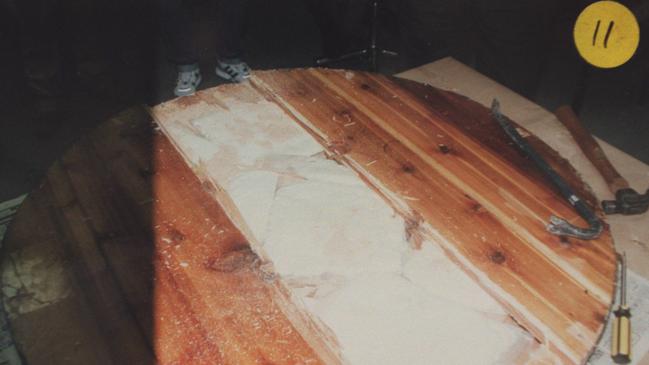
Benjamin Ronald Buttigieg
The Adelaide man was spared further jail time over an attempt to import cocaine in a package labelled “documents”.
Buttigieg, then 34, was charged with importing a marketable quantity of cocaine over his failed attempt in 2016.
The District Court heard in July, 2019, he tried to have 134.5g of high-purity cocaine mailed to a person in Adelaide’s CBD.
The package arrived in Australia on September 18, 2016, but was immediately confiscated by Australian Border Force officials.
When police confronted Buttigieg on September 27 he began complaining of chest pains and became so anxious that an ambulance was called.
He then attempted to escape arrest and resisted police before being dragged into the ambulance.
He was sentenced to two years, 11 months and three weeks in prison but had the sentence suspended because of his lack of offending and positive rehabilitation prospects.
David Mark Nicholas and James Nicholas
The brothers who joined the Hells Angels bikie gang after serving in the Australian Defence Force were jailed for dealing drugs to an undercover police officer.
David Mark Nicholas became a member of the Hells Angels and his brother James Nicholas was a prospective member when they were arrested for drug trafficking in May 2017.
In the preceding months, the brothers had taken part in the sale of large quantities of cocaine.
However, the man they sold the drugs to was an undercover police officer and both pleaded guilty to charges of trafficking in a controlled drug.
In May, 2018 District Court Judge Jane Schammer said David, 28, had served nine months in Afghanistan when he was aged 22.
“You were considered an excellent soldier with leadership qualities which saw you rise quickly through the ranks,” Judge Schammer said.
However, after returning home to the Adelaide Hills, he became increasingly “on edge, jumpy and easily angered, showing signs of post-traumatic stress disorder.
“You broke up with your long-term partner, you started drinking more heavily and you turned to drug use, specifically ecstasy,” Judge Schammer said.
She said David Nicholas began to associate with members of a veterans’ motorcycle club, where he met others with associations to the Hells Angels.
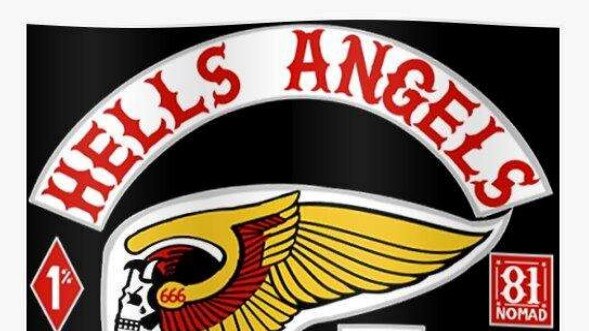
“You were attracted to join what you perceived to be a sense of camaraderie, discipline and brotherhood, akin to what you had experienced in the army,” Judge Schammer said.
“It is difficult to reconcile your involvement in such an activity with your prior service to the community through the Defence Force.”
James Nicholas, 29, also served a stint with the army but was not deployed overseas and both brothers wrote letters to the court apologising for the shame they brought upon their family.
Judge Schammer said despite the brothers’ claims they wanted to stop associating with the Hells Angels, they had not been able to do so while in prison.
“You are housed with fellow Hells Angels’ associates and members. I accept that in those circumstances it has been very difficult for you to renounce your ties with the Hells Angels to date,” she said.
David Nicholas was jailed for 10 years, including a previously suspended prison term for dealing drugs in 2014.
However, Judge Schammer imposed a low non-parole period of three and a half years, to allow David the best chance at turning his life around on parole.
James Nicholas was jailed for three years and nine months, with a 16-month minimum term backdated to May 2017.
Ana Paula Melo Marquis
The Brazilian mother who was busted with more than 2kg of high-grade cocaine at Adelaide Airport said she was forced into the crime by drug lords who threatened to kidnap and sell her young son.
Ana Paula Melo Marquis was searched by Australian Border Force police in December 2016, when 2.152kg of cocaine was discovered inside her suitcase.
Marquis sat with an interpreter in the dock in February, 2018, as Judge Sophie David jailed her for six years with a non-parole period of three years for the failed drug scheme.
Prosecutors accepted Marquis’ claims that while she initially agreed to act as a drug mule when broke and unemployed, she later found work and reneged on the arrangement.
However, the cocaine dealers refused to allow Marquis to back out of the deal, despite her efforts to flee and change her personal details.
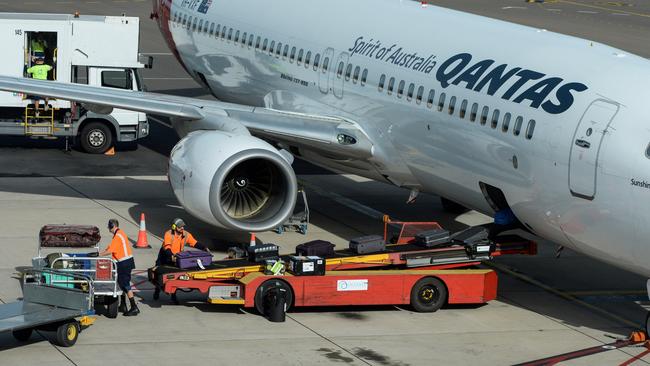
Judge David said Marquis was left with little option but to fly from Brazil, through Dubai into Adelaide with the expensive illicit drugs - but this time without any payment other than the safety of her child.
The court heard Marquis was sent photographs of her young son at his school, and told that if she did not co-operate, he would be kidnapped and sold.
Judge David said while the dire threats were not a defence to the trafficking charge - which carried a maximum penalty of life in prison - the Brazilian’s moral culpability was less than many other drug mules.
“You would not have committed the offence but for the very serious threats made to your young son,” she said.
“I accept the objective seriousness of your offending is significantly reduced, as is your moral culpability, notwithstanding that you initially agreed to import the drugs for financial gain.”
The court heard Marquis had been a dental student before falling pregnant at 19. Then her marriage broke down and she found herself in financial peril.
Judge David said Marquis had only limited phone contact with her family since her incarceration and that her son was struggling to cope without her.
“You have no friends or family in Australia … your time in custody has been and will be necessarily harsh because of your isolation from your family, very young son, friends and culture,” she said.
Matthew John Solomon
Solomon was jailed in March, 2005 for four years for his part in the sale of cocaine with a non-parole period of two years.
Judge David said the Para Hills resident was the “middle person” between the cocaine’s seller and ultimate buyer – at one stage in October, 2002, receiving 15.93kg of pure cocaine from his co-accused, who brought it to Adelaide from Sydney.
Solomon had asked the court to suspend his sentence, owing to his father’s medical history of anaemia, chronic pain and renal failure.
“(It is put) that your presence is essential to assist your father in normal daily activities (and) that you cannot afford to place him in a home and that the only assistance he can get is from you,” Judge David said.
“In fact, it is put to me, that if I do not suspend your sentence and you are not able to help him, his health will be at grave risk.
“However, difficult as it may be, you, yourself … must make arrangements for his care.”
Cassie Sainsbury
Dubbed ‘Cocaine Cassie’, the convicted South Australia drug smuggler walked free last April after just three years behind bars in a South American prison.
Sainsbury made international headlines when she was arrested at El Dorado airport in April 2017 for trying to smuggle 5.8kg of cocaine packed in headphone boxes out of Colombia.
She was en route to London when she was stopped just metres from the boarding gate after a tip-off from US federal agents from the Drug Enforcement Agency.
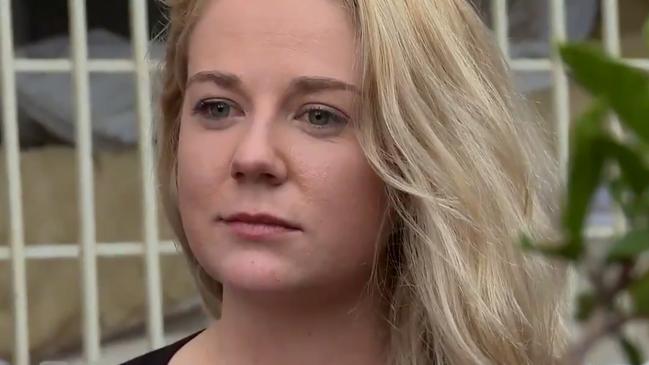
Sainsbury, who grew up on the Yorke Peninsula, initially claimed she bought the headphones as gifts for her bridal party.
She was initially facing a prison term of more than 20 years before a plea deal cut her sentence to six years.
Sainsbury was one of 4000 prisoners released in April last year by Colombian authorities to protect them from infection with the potentially deadly COVID-19.
As part of her parole conditions, the former personal trainer from Adelaide must remain in Colombia for 27 months.
Zoe Burns
The Adelaide mother was part of a $1.3m international cocaine smuggling racket with links to four continents.
However, her appeal against a five-year and six-month jail sentence was dismissed in September, 2015.
Burns, a former Dutch bar manager who moved to Adelaide, pleaded guilty to aiding and abetting the importation of a marketable quantity of a border-controlled drug between September 2009 and January 2010.
The then-45-year-old of Hackham received a non-parole period of two years and nine months over the cocaine operation with links to Peru, Israel, South Africa and Australia.
Her lawyer, Mark Griffin QC, told the court the sentence was manifestly excessive as she merely facilitated the operation by providing $3000 in return for the promise of an ounce of the drug.
Burns knew her husband and brother had been involved with drug running and allowed her computer to be used to facilitate the deal, the court heard.
However, the racket was smashed by Peruvian authorities in 2009 when they raided an office where eight white powders of about 2.75kg of highly pure cocaine was found hidden in a battery-testing machine in the country’s capital Lima.
Douglas Schneider De Souza
The Brazilian man caught with up to $2m worth of cocaine at Adelaide Airport was jailed for more than eight years in December, 2014.
De Souza had flown from Brazil via Dubai when he was caught with 2.83kg of cocaine hidden in suitcases in April that year.
Then 25, De Souza agreed to carry the drugs into Australia to pay off a large drug debt.
Judge Paul Muscat pointed to the risks he still faced in Brazil.
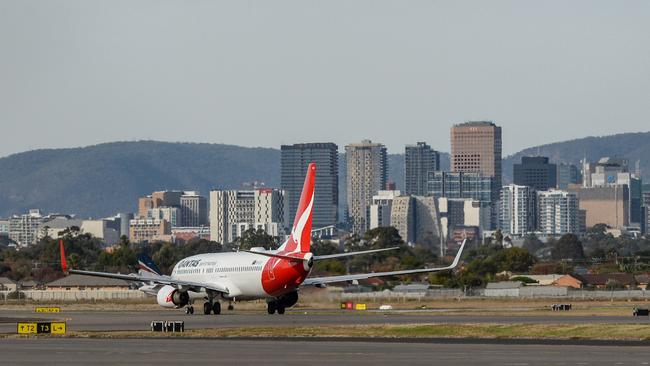
“Clearly someone is not going to be happy, so the risks to you and your family remain, which must have a terrible effect upon you,” Judge Muscat said.
He was jailed for eight years with a four-year non-parole period and was expected to be deported upon his release.
John Lawrence Bagalini
The California man received a nine-year jail term in Adelaide for his part in smuggling cocaine into the state.
Australian Custom Service concerns about a snake skin embedded in an imported laminated table led to the discovery of almost 4kg of pure cocaine, the Supreme Court heard in 1994.
The court heard Bagalini, then 41, helped make the table and pack it with 5kg of powder, containing 3.8kg of pure cocaine which had a street value of $1m.
Set into the top of the table was American memorabilia, including the skin of a western diamond-backed rattlesnake.
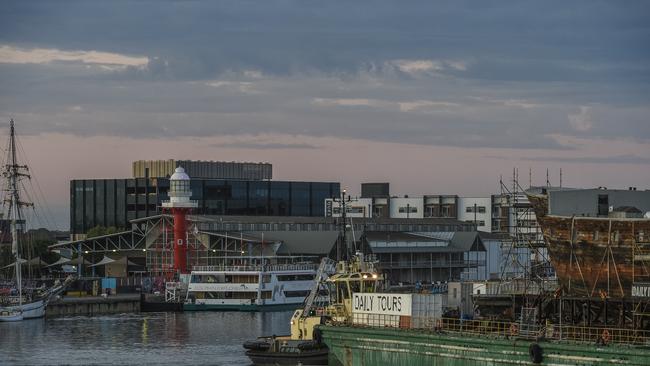
In April, 1993, customs officers refused to release the table to Bagalini because they were worried the snake skin belonged to an endangered species.
Suspicions were raised when Bagalini became agitated by the delay.
Federal police then drilled holes into the table, uncovering a fine white powder, later found to be cocaine.
Bagalini was charged with drug possession and importation.




